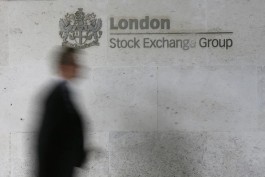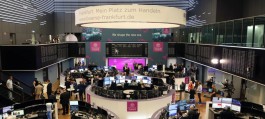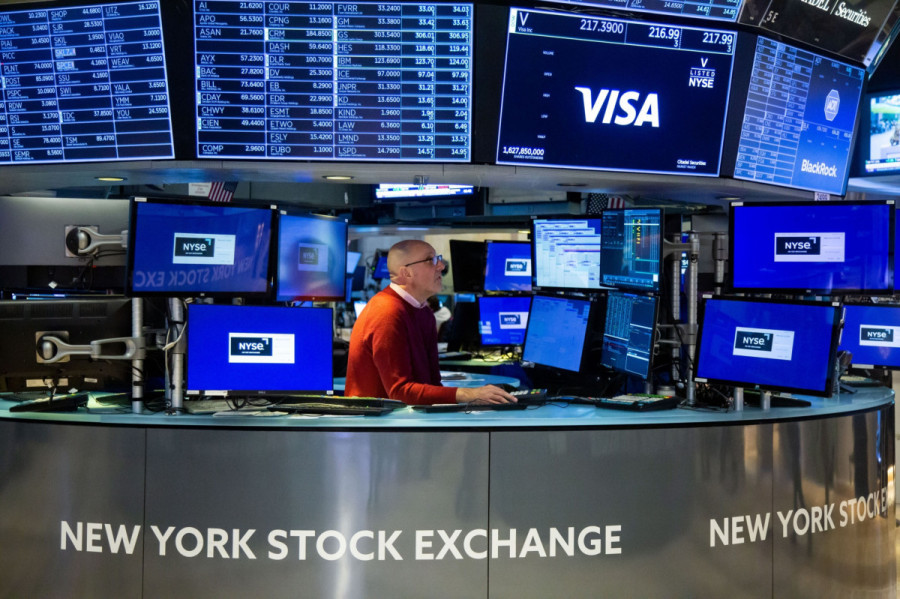Stock markets started this week with cautious trading, with traders studying a group of statements by Federal Reserve officials, while they await the release of important figures on inflation and the start of the earnings season.
After a three-day decline, the Standard & Poor's 500 Index rose slightly. The market did not get much support from the large corporate sector, with Tesla's stock declining by nearly 2%, and Amazon's stock falling before the Prime Day celebration.
The Nasdaq 100 achieved an outstanding and historic performance in the first half of the year amidst the mania of artificial intelligence, but it will undergo a rebalancing process of its own.
The gains of one of the indicators of the performance of major banks declined due to news about a plan to raise capital adequacy standards.
In the run-up to the release of the CPI this coming Wednesday, the market has had a handful of what monetary policy makers have in mind.
Three Fed officials (Michael Barr, Mary Daly, and Loretta Mester) have said that the central bank will need to raise interest rates this year until the inflation rate returns to its 2% target.
At the same time, Atlanta Fed President Raphael Bostick noted that central bank officials may be patient amid signs of a slowing economy.
Minutes of the Federal Reserve meeting reveal a split towards halting interest rates in June
The market's momentum has waned since stocks snapped higher in the first half of the year, as concerns mount about the impact of too many economic contrarians on corporate earnings.
Michael Wilson of Morgan Stanley has become the latest to warn that earnings forecasts will take on more importance than usual this time around in light of rising stock values, rising interest rates and deteriorating liquidity.
Seema Shah, Head of Global Strategy at Principal Asset Management, believes that huge risks still lie ahead. With stock values in general rising again, and the market choking to an extreme degree, the stock prices in the market have reached their limit, which makes them vulnerable to the risks that may arise. About disappointment in earnings.
Expensive attempt
This is the fifth time in a row that analysts have tended to be pessimistic as earnings season approaches, and in each of the four previous periods the news was not as bad as expected, with the S&P 500 posting an average gain of more than 6%, according to estimates by the company. Bespoke Investment Group.
The company's strategists asked in a note: Will the current earnings announcement season finally be the season that validates analysts' estimates? If they take a stand each quarter, they will eventually be proven right, but betting against the market heading into earnings season has recently proven to be a costly endeavor.
Earnings season begins in earnest on Friday, when JPMorgan Chase, Citigroup and Wells Fargo banks announce their financial statements. More trouble awaits the S&P 500, as warnings of lower earnings and fears of rising interest rates combine to threaten the main US stock index, according to the latest Markets Live Pulse survey.
While earnings seasons were usually positive for the market in the past decade, according to Deutsche Bank analysts, the coming season will be bad for stocks, said 55% of 346 respondents to the survey.
For Matt Maley of Miller Tabak+, it's going to be tough for stocks to rally if earnings season doesn't turn out as bad as we think, especially now that the market has become so overvalued.
Mali added that this does not mean that if the signal coming from the companies is fine, the market will witness heavy selling. However, if corporate expectations show any real disappointment, it should result in some serious headwinds for the stock market.
Lower earnings estimates
The issue is whether earnings can continue to fall without changing the direction of the market, according to Saira Malik of Nuveen. With analysts cutting profit estimates in recent weeks, it may once again become easy for companies to post stronger-than-expected results.
“We're wary of self-fulfilling optimism driven by these low expectations,” Malik says. In addition, we are aware of the mixed US economic data and the possibility of two more rate hikes this year.
In terms of corporate news, the US-listed Chinese stock index rose on the back of news that the Asian country will expand its policy to support the real estate market. Icahn Enterprises stock soared as Carl Icahn renegotiated loan terms with a group of banks just months after a report by Hindenburg Research sent his company's shares lower. Cava Group stock rose as most brokers started covering the fast food restaurant operator with buy rewards.







































